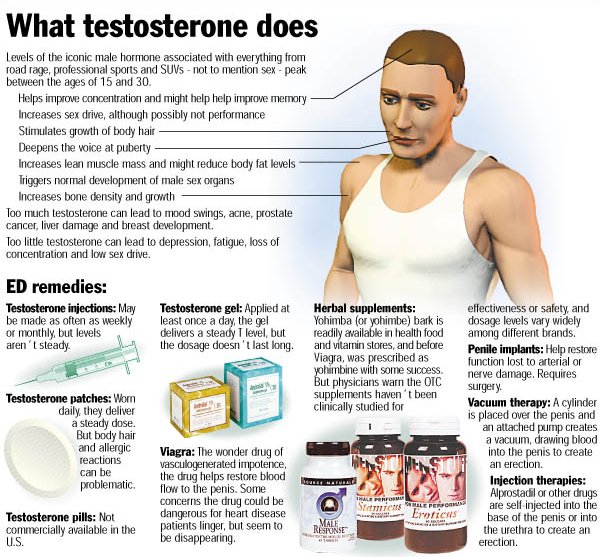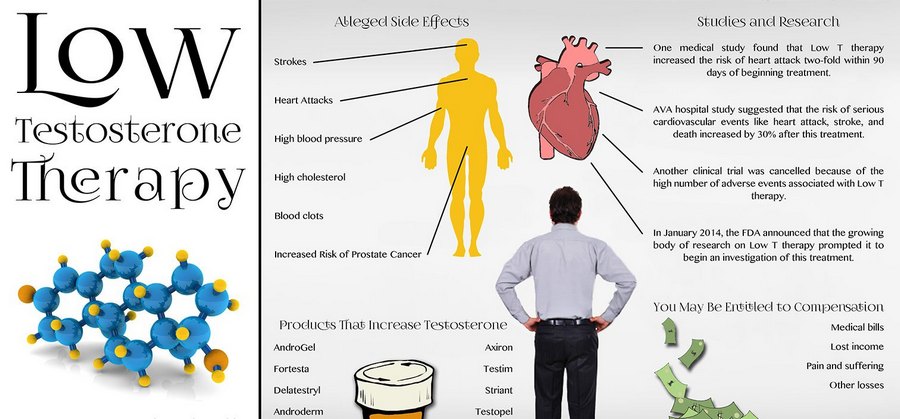A large number of studies suggest that low levels of testosterone are the leading cause of impotence or erectile dysfunction. On the other hand, men who have healthy amounts of testosterone enjoy healthier sex life and are not prone to impotence. But is it really true? If you are finding it difficult to understand the relation between testosterone and impotency, this explanation from My Canadian Pharmacy online administration is sure to clear your doubts. Let us start with the basics.
What is Testosterone?
Testosterone is an androgen hormone which is naturally produced in both men and women, however, it is the primary sex hormone for men, while it’s the estrogen in women. The testicles are where this hormone is produced primarily and is regulated by the hypothalamus and pituitary gland. It plays a major role in the development of sexual organs in men in their fetal stage and is also responsible for the physical changes that take place when a boy hits his puberty. Maintaining the physical features and typical characteristics of a male is done by testosterone as well.
Let us have a quick look at some other functions of testosterone in a man’s body:
- production of the sex hormone;
- a major role in the modulation process of sperm production;
- maintains the feelings of sexual desire and sex drive;
- affects energy levels, mood, bone strength and muscle mass.

Testosterone and Impotence
My Canadian Pharmacy explains that there are a number of reasons that can result in erectile dysfunction problem. Thus, low amounts of testosterone should not always be thought of as the culprit. Yes, testosterone plays a major role in the erections in men, but a large number of men who do not have healthy amounts of testosterone in their blood do have satisfactory erections.
Majority of the times, low sex drive which often accompanies the problem of impotency is believed to be a problem caused due to low levels of testosterone by the patient themselves or his physician. However, My Canadian Pharmacy suggests that the men who suffer from impotency generally are not interested in sex because of avoidance or depression and not because of low levels of testosterone. Their mindset is as such that they won’t be able to do it so why really bother.
Another important factor in this unreal relation between testosterone and impotency is age. As men ages, the amount of testosterone generally starts dropping at an average of 2-3% a year. Moreover, aging can also result in decreased sexual desire and difficulty in maintaining an erection. These are two separate problems and no study suggests that one is caused due to others.
Also, testosterone is available in more than one form in the human body. While about 40% of testosterone is attached with the SHBG (Sex Hormone-Binding Globulin), about 2% of it floats freely in the body. The remaining amount of testosterone is lightly attached to albumin and other types of protein in the body. Canadian Pharmacy states that the amount of free-floating testosterone can be affected due to a number of medical conditions, while the testosterone attached to SHBG can remain unaffected. This can also happen the other way around. Thus, while evaluating and recommending a treatment, it is very important to measure both the SHBG and the free-floating testosterone.

Treatment if Your Impotence is Because of Low Testosterone
As mentioned above, low testosterone levels are not always the reason for impotence in men. However, the good news is, if your impotency is because of low testosterone levels then there is a major possibility that it can be completely treated. While there are temporary treatments like Viagra, testosterone replacement therapy is suggested by My Canadian Pharmacy as a solution to this problem.
The therapy can include the use of pills, gels, patches and injections. However, it is very important to remember that testosterone replacement therapy is only recommended in severe cases. Providing the body with testosterone through an external source affects the natural levels of testosterone in your body and can result in problems, like sterility and shrinking of testicles. Thus, make sure that you consult with multiple experts before thinking about this treatment.

